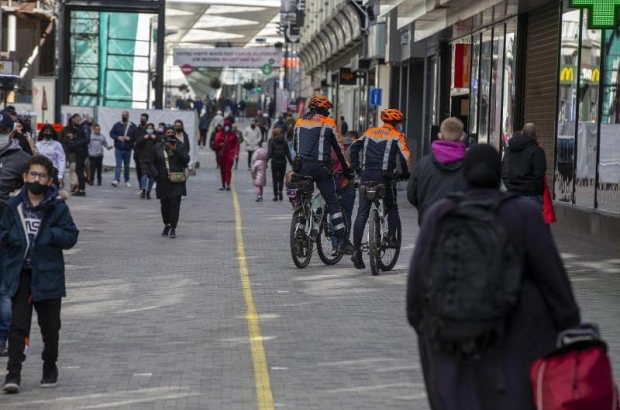- Daily & Weekly newsletters
- Buy & download The Bulletin
- Comment on our articles
One year after Brussels resolution to do better, ethnic profiling remains a problem
More than a year after a resolution was adopted with the intent of improving the relationship between the police and the people of Brussels, an organised discussion with community members revealed that ethnic profiling remains a significant issue.
Twenty-five young people from Brussels and two members of the police zone South met at Circularium in Cureghem to discuss the approach to combating ethnic profiling, Bruzz reports, with many residents expressing frustration that nothing seemed to have changed.
“Behind the scenes, a lot is happening. But young people do not notice any difference yet,” said Brussels MP Els Rochette (One.brussels/Vooruit), who organised the discussion.
Some of those behind-the-scenes changes included recommendations for putting an end to random identity checks, better training for driving a police vehicle and a more polite approach to young people in Brussels. But not every recommendation has yet been acted upon.
Rochette said that in spite of shortcomings, significant progress had been made in terms of awareness: “The topic is no longer taboo. That is not the greatest progress, of course, but unlike before, the taboo around ethnic profiling has disappeared. People are working on it everywhere.”
Young people still report feeling unsafe around police
“More than 76% of young people in Brussels indicate that they feel unsafe when in contact with the police,” said Ilyas Mouani, who was asked to speak as president of the FCC Youth Council.
“Moreover, 70% of young people do not know their rights and duties. More attention needs to be paid to this as a matter of urgency.”
Several people in the discussion said they had experienced racist incidents when coming into contact with police. In a live poll, 62% of those present indicated that they did not want to become police officers themselves.
“How are you going to recruit people from Brussels to work for the police if they are oppressed by the same police?” one participant said. “You will never see me working there.”
Ayoub Ben Abdeslam, a youth worker at Foyer VZW, said it didn’t seem like much had changed overall.
“When there is an incident, it seems like they are working on it, but afterwards nothing changes. It's great that two police officers are here and that we can engage in dialogue, but much more needs to be done.”
His concerns were echoed by Brahim Lhichou, who had also spoken on the floor during 2020 hearings in the Brussels Parliament on how to improve the relationship between citizens and police.
“Of course, it is still too early to see results. This is a long-term job,” Lhichou said.
“Indeed, we do not see any change yet. We need more rules and the police need to follow them. It’s difficult for young people to understand when they see policemen doing things that are not right, and then they are not punished for them afterwards.”
Lhichou said that an enhanced proximity policing was not a magic solution: “The problem goes much deeper than a lack of dialogue. If you have a good neighbourhood policeman, the young people will say they’re a good one, but the other policemen might remain bad in their eyes. It's time to stop talking and enforce the law on cops who don't respect it.”
Photo: © Belga/Nicolas Maeterlinck



















